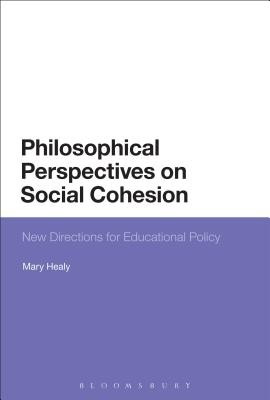
- We will send in 10–14 business days.
- Author: Mary Healy
- Publisher: Bloomsbury Publishing PLC
- ISBN-10: 147423464X
- ISBN-13: 9781474234641
- Format: 15.6 x 23.4 x 1 cm, softcover
- Language: English
- SAVE -10% with code: EXTRA
Reviews
Description
What would the civic relationship between citizens in a socially cohesive society look like? What models might we use to educate young people to support developing these bonds? Do these different models have different implications for how we structure the bonds that support a civic relationship?
Philosophical Perspectives on Social Cohesion challenges the basis of how we characterize civic bonds and how we best organize schools to encourage and develop them. Mary Healy argues that metaphors and social imaginaries often give a framework for considering our interrelatedness. She re-examines the metaphor of fraternity, used as a precursor to elements of the 'Big Society', arguing that such attempts to align fraternity with liberty are mistaken and that equality plays a vital role. At a time of increasing diversity of school provision, this pertinent book indicates the connection between how we organize school structures and the models of citizenship we value.
EXTRA 10 % discount with code: EXTRA
The promotion ends in 19d.14:02:35
The discount code is valid when purchasing from 10 €. Discounts do not stack.
- Author: Mary Healy
- Publisher: Bloomsbury Publishing PLC
- ISBN-10: 147423464X
- ISBN-13: 9781474234641
- Format: 15.6 x 23.4 x 1 cm, softcover
- Language: English English
What would the civic relationship between citizens in a socially cohesive society look like? What models might we use to educate young people to support developing these bonds? Do these different models have different implications for how we structure the bonds that support a civic relationship?
Philosophical Perspectives on Social Cohesion challenges the basis of how we characterize civic bonds and how we best organize schools to encourage and develop them. Mary Healy argues that metaphors and social imaginaries often give a framework for considering our interrelatedness. She re-examines the metaphor of fraternity, used as a precursor to elements of the 'Big Society', arguing that such attempts to align fraternity with liberty are mistaken and that equality plays a vital role. At a time of increasing diversity of school provision, this pertinent book indicates the connection between how we organize school structures and the models of citizenship we value.


Reviews